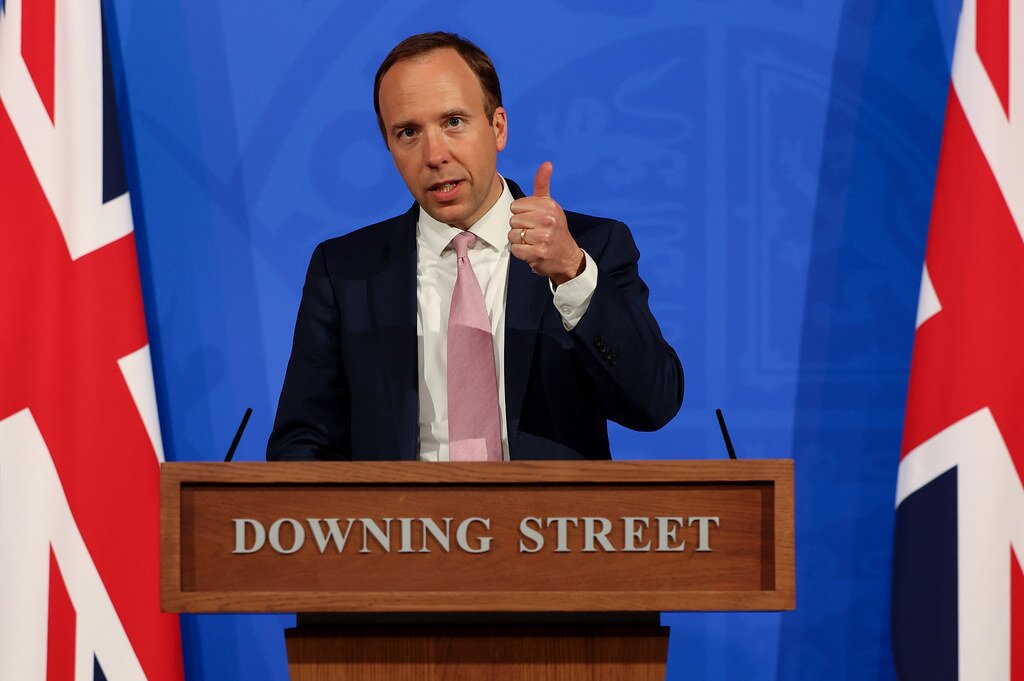Hospitality industry holds its breath as vital decisions to be made this week
The hospitality industry in England is holding its breath as the government is set to make several decisions this week that could have huge repercussions on the industry’s recovery.
The decision whether social distancing restrictions will be dropped on 21 June as hoped will depend on data this week around case numbers and hospitalisations, but it is not expected to be confirmed whether the easing will go ahead until 14 June.
At the time of writing, across the UK, 76.6% of the adult population had received their first vaccination, and 52.5% their second. Between 31 May and 6 June, 33,496 people tested positive for coronavirus, up 49% on the previous seven days, but the number of patients admitted to hospital appeared to be falling.
Health secretary Matt Hancock told Sky News that it was too early to confirm whether ‘Freedom Day’ will go ahead, and added: “We are not saying no to 21 June at this point.”
Some scientists have been calling for a delay to the easing of restrictions, however Kate Nicholls, chief executive of UKHospitality, said any delay would have a "devastating effect" on an "already fragile" hospitality sector and "would push many businesses closer to the cliff edge of failure, meaning more job losses".
One in four of hospitality businesses remain closed due to restrictions and those venues that are trading are doing so with significantly reduced capacity, delivering revenues at 63% of normal pre-Covid levels. Each further month of trading at this reduced capacity reduces revenues by a further £3b for the sector.
It has also been reported that discussions are taking place regarding the build-up of rent arrears this week, with the current moratorium due to end on 30 June. The government’s review into discussions between commercial tenants and landlord closed earlier this month which will be used to inform its decision-making.
The government said it "will not hesitate to intervene further" if there is evidence that productive discussions between landlords and tenants were not taking place and that this represented a substantial and ongoing threat to jobs and livelihoods.
Rent debt in the hospitality sector is estimated to be more than £2b and a third of hospitality premises have not been able to reach a rent debt solution with their landlords, who are demanding rent in full from the moment the moratorium ends.
Speaking on a treasury select committee this afternoon, Nicholls said the moratoria needed to be extended urgently to avoid “unnecessary insolvencies”, with one in five businesses concerned that unless a solution is found on rent debt, it will trigger insolvency or site closures.
“Either we have to lift the restrictions and press ahead with step 4 or we have to extend the moratorium and then find a route through to get both landlords and lessees to a compromise solutions,” she said.
The Confederation of British Industry (CBI) has proposed that firms in the hardest-hit sectors should continue to be protected for a further six months, with companies that can demonstrate lockdown-related falls in revenue of more than 30% in 2021 given additional breathing space.
It also recommended that unpaid commercial rent debt accrued during lockdowns should be ringfenced and negotiated separately between occupiers and landlords with a time-limited extension of protections to encourage parties to reach agreements.
At the same time, repayments will soon be due for the government’s bounce-back loans and business rates bills will start being issued by councils once again. The sector has accumulated £6b in government-backed debt since the start of the Covid-19 pandemic.
Nicholls added that businesses were struggling to get their loan terms extended for 10 years even though, while trading under restrictions, businesses are not breaking even and cannot begin to address their debt.
She highlighted that uncertainty was the biggest issue affecting the hospitality industry, affecting both staffing and businesses’ ability to negotiate with landlords.
“The single biggest issue we’re facing is a lack of confidence that the sector has a sustainable future and is a viable future with the uncertainty around reopening and when restrictions can lift,” she said.
“We do need a big injection of confidence from the government about the future reopening of the economy… There is simply an inability to do a deal while you have got no certainty about the conditions under which you can trade.”
The rent moratoria in Wales and Northern Ireland also end this month, while Scottish businesses have until September. From this week, larger outdoor organised gatherings and events – such as concerts, football matches and sporting activities – can go ahead in Wales for up to 4,000 people standing and 10,000 people seated.
Photo: No 10 / Flickr

















